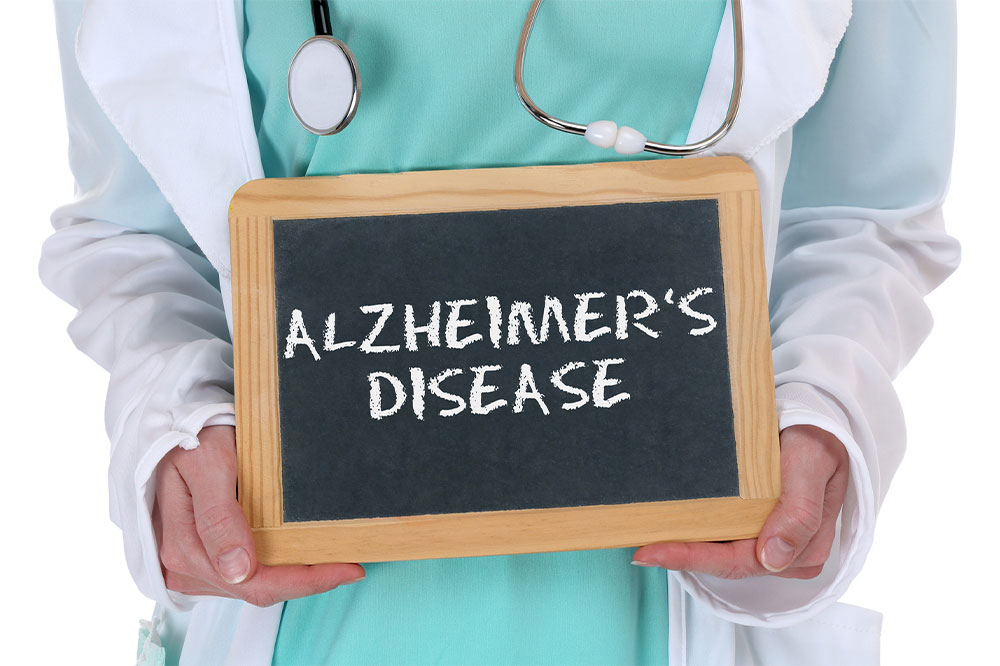9 most common warning signs of Alzheimer’s disease
With increasing age, it is normal to have problems with memory and cognitive tasks. However, a person could be dealing with Alzheimer’s if these problems are more severe and prevent them from doing even the most routine chores. Yes, the signs of Alzheimer’s disease and aging are very similar, but one can tell the difference.
Extreme memory loss
Most people find it hard to remember places, events, or names as they age. Such mild loss of memory is normal. However, if this happens more frequently or interferes with one’s daily tasks, it is an indicator of Alzheimer’s disease. Forgetting the names of close family members, relatives, and friends or landmark events in life is a cause for concern. Asking the same questions over and over again is another characteristic sign of this health condition.
Inability to follow basic instructions
Young or old, we all make mistakes. But, if a person finds it difficult to follow basic instructions, such as the steps in their favorite recipe, or finds it hard to manage and pay bills, it could be a warning sign of this mental health condition.
Difficulty with simple routine tasks
Needing help with the microwave buttons or the features of a mobile phone is a typical sign of aging. However, issues with routine tasks like using the TV remote, folding clothes, or finding the way around the house should not be taken lightly. These are signs of severe memory loss, which could be the onset of Alzheimer’s disease. It is best to consult a healthcare expert as soon as possible when facing such difficulties.
Losing track of time and place frequently
Entering a room and forgetting what one wanted or needed to do there, or looking at a calendar to know the day of the week, are typical signs of aging. However, frequently forgetting the date, season, or time of day could be due to a more severe mental health condition. It can lead to a lot of confusion and even cause anxiety.
Issues communicating
Not finding the right word or misusing it while writing or speaking is common in old age. However, individuals with Alzheimer’s disease have severe difficulty talking and writing. They cannot recall the names of familiar everyday objects and have trouble carrying on a conversation due to memory issues that interfere with what they want to say next.
Social withdrawal
Most patients withdraw from friends and family due to communication problems and mental confusion. Their memory issues also cause them to lose interest in activities and hobbies they once enjoyed doing. It is one of the most prevalent signs that help diagnose the disorder and should not be ignored.
Sudden and extreme mood changes
As people age, they like things done a certain way and follow a tailored routine to get through the day. They could become irritable and even angry if this routine is disrupted but have control over their emotions. However, those with Alzheimer’s become extremely confused, suspicious, and fearful if their schedule is suddenly interrupted. They quickly get upset even in familiar settings and around known people, such as family members and friends. Sometimes, mood changes are severe, and they can fall into anxiety and depression.
Issues with visual cues
Most people have issues with vision in old age due to the development of cataracts. They find it hard to read fine prints and need a pair of spectacles to see clearly, which is a normal part of aging. However, those with Alzheimer’s disease have severe problems with eyesight. Patients usually have trouble reading or judging the distance between objects, do not recognize colors and determine contrast, and cannot shift focus quickly, making them more susceptible to falls. They might also fail to recognize themselves in a mirror.
Frequently misplacing things
People, both young and old, misplace things like their keys or sunglasses around the house. This issue gets worse with age. But a person with Alzheimer’s disease not only loses things but also finds it hard to retrace their steps to find them. And this happens time and again within the same day. Sometimes, patients become suspicious of those around them, thinking they stole the item.
Since the signs of aging and Alzheimer’s disease are similar, individuals must be watchful about the above differences and consult a doctor at the earliest. Although the condition has no cure, timely detection can provide people the help and support to improve their quality of life.



